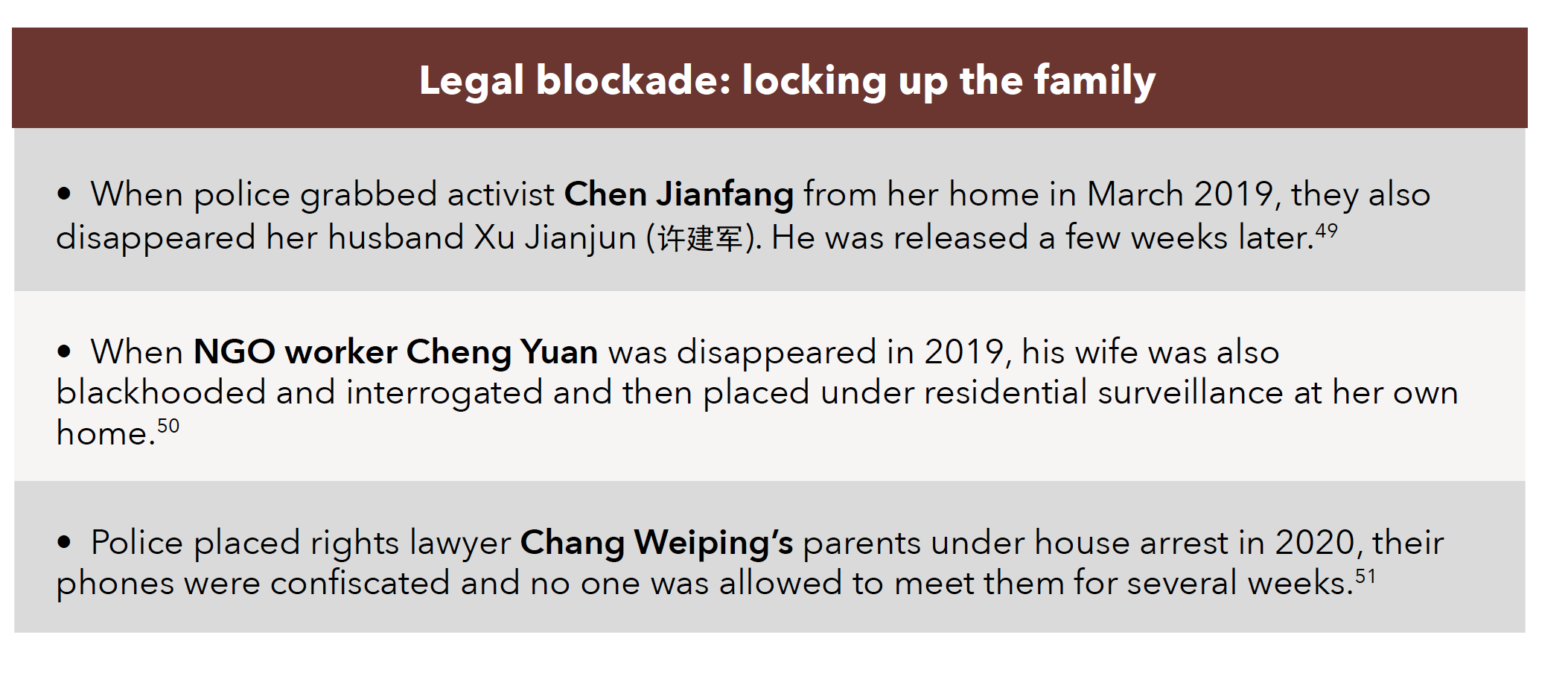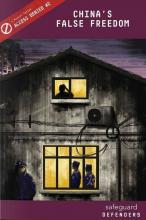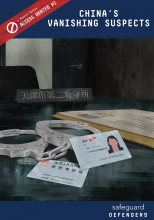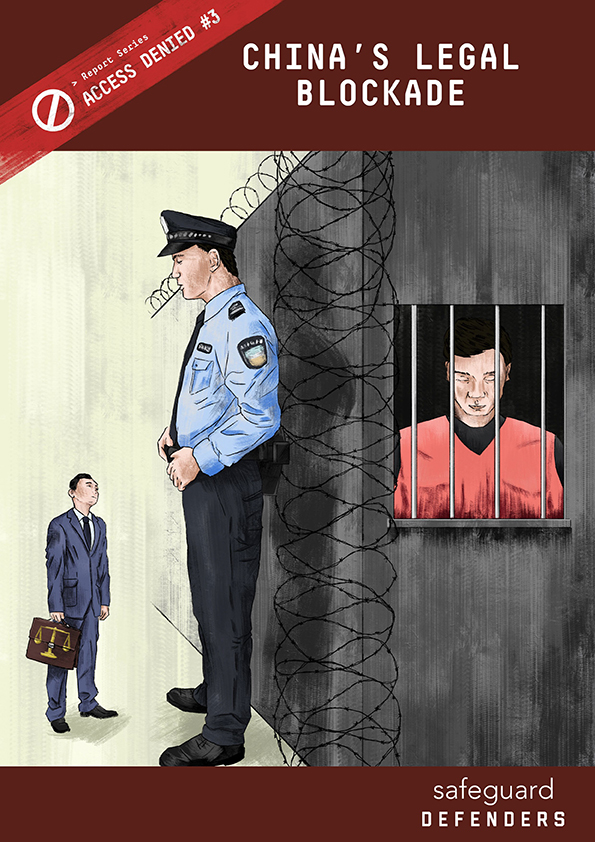The 3 ways China blocks access to lawyers
 Your right to see a lawyer in China is guaranteed under the law. But that right is being routinely and widely undermined by the police, prosecutors and even the courts, because the ruling Communist Party of China (CCP) does not want detainees to have independent legal defence.
Your right to see a lawyer in China is guaranteed under the law. But that right is being routinely and widely undermined by the police, prosecutors and even the courts, because the ruling Communist Party of China (CCP) does not want detainees to have independent legal defence.
The state employs a wide variety of tools to deny access from Covid restrictions to weaponizing lawyers’ licences and from threatening family members of the detainee to hiding suspects under fake names in detention centres so they can’t be found.
Our latest report, and the third and final part of our Access Denied series looking at the serious deterioration in rule of law in China, is now out. Access Denied 3: China’s Legal Blockade reveals how the CCP uses a three-pronged approach to limit detainees’ access to legal counsel of their choice by (1) targeting the suspect themselves, (2) their family and friends, and (3) any lawyer who attempts to take on sensitive cases. Some of these moves have involved recent changes to the laws on lawyers and law firms in order to give this “silent crackdown” on legal defence a semblance of legitimacy.
Read the report here [EN] and here [CH]
The three ways the CCP blocks access to lawyers are by targeting:
- Suspects: Police frame suspects with national security crimes to deny them access to a lawyer during the first stages of arrest and then force them to accept state-appointed counsel, who take their orders from the prosecution;
- Family: Police threaten family to stop hiring lawyers; hide suspect from them by registering them under a fake name;
- Lawyers: Judicial organs threaten lawyers to drop cases and suspend or revoke licenses if they refuse; detention centres give fabricated excuses to deny or delay meetings indefinitely.

 China’s Legal Blockade uses in-depth interviews with lawyers and family members of victims and online research to document the dozens of lawyers persecuted for taking on cases and countless examples where suspects were denied their own choice of legal representation. Well-known Chinese human rights lawyers who have lost their licences – Wang Yu, Wang Quanzhang and Ren Quanniu -- shared their insights and experiences as well as the wives of imprisoned human rights defenders who have fought bravely in vain to secure legal counsel for their husbands. The report also looks into the legal basis for this attack on legal defence, pointing out how the police and judicial bodies violate China’s own laws and regulations to block access to legal defence.
China’s Legal Blockade uses in-depth interviews with lawyers and family members of victims and online research to document the dozens of lawyers persecuted for taking on cases and countless examples where suspects were denied their own choice of legal representation. Well-known Chinese human rights lawyers who have lost their licences – Wang Yu, Wang Quanzhang and Ren Quanniu -- shared their insights and experiences as well as the wives of imprisoned human rights defenders who have fought bravely in vain to secure legal counsel for their husbands. The report also looks into the legal basis for this attack on legal defence, pointing out how the police and judicial bodies violate China’s own laws and regulations to block access to legal defence.
The infamous case of the 12 young democracy activists from Hong Kong who were arrested as they tried to escape a draconian National Security Law in a speedboat in 2020 is a typical example. Not a single one of them was able to see the lawyers their family had hired to defend them in China. And in the months afterwards, at least three Chinese human rights lawyers lost their licenses to practice after trying to represent those Hong Kong clients. The latest was Lin Qilei, who was told a few weeks ago that he too had lost his license to practice law.
Police prevented detained human rights lawyer Chang Weiping from seeing a lawyer for 11 months after they disappeared him. Just a month later – this past November – they blocked access again, this time claiming Covid prevention measures mean he can’t see his lawyer.
Slowly and surely, the CCP is crushing rights defence while avoiding the international attention that mass disappearance and jail sentences bring. The CCP pretends to its own people and to the international community that China protects the rights of its citizens. The text of its laws, the words of its officials, and the judgements of its courts are all scripted to disguise their show trials as fair trials. This report aims to shine a spotlight on just one of the many human rights violations perpetrated by the CCP – the open, repeated, and widespread denial of access for a detained person to an independent defence lawyer.
Read the report here [EN] and here [CH]
The two earlier reports in the Access Denied series can be downloaded here:


- Access Denied #2: China's False Freedom on the Non-Release Release phenomenon where having served time in prison, the victim continues to be illegally detained by the police
- Access Denied #1: China's Vanishing Suspects on hiding suspects under fake names in detention centres to prevent their lawyers or loved ones finding out where they are being held
